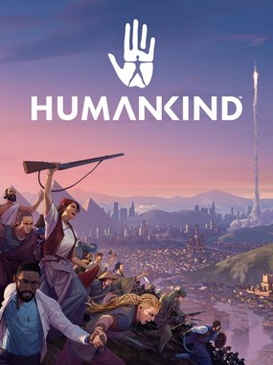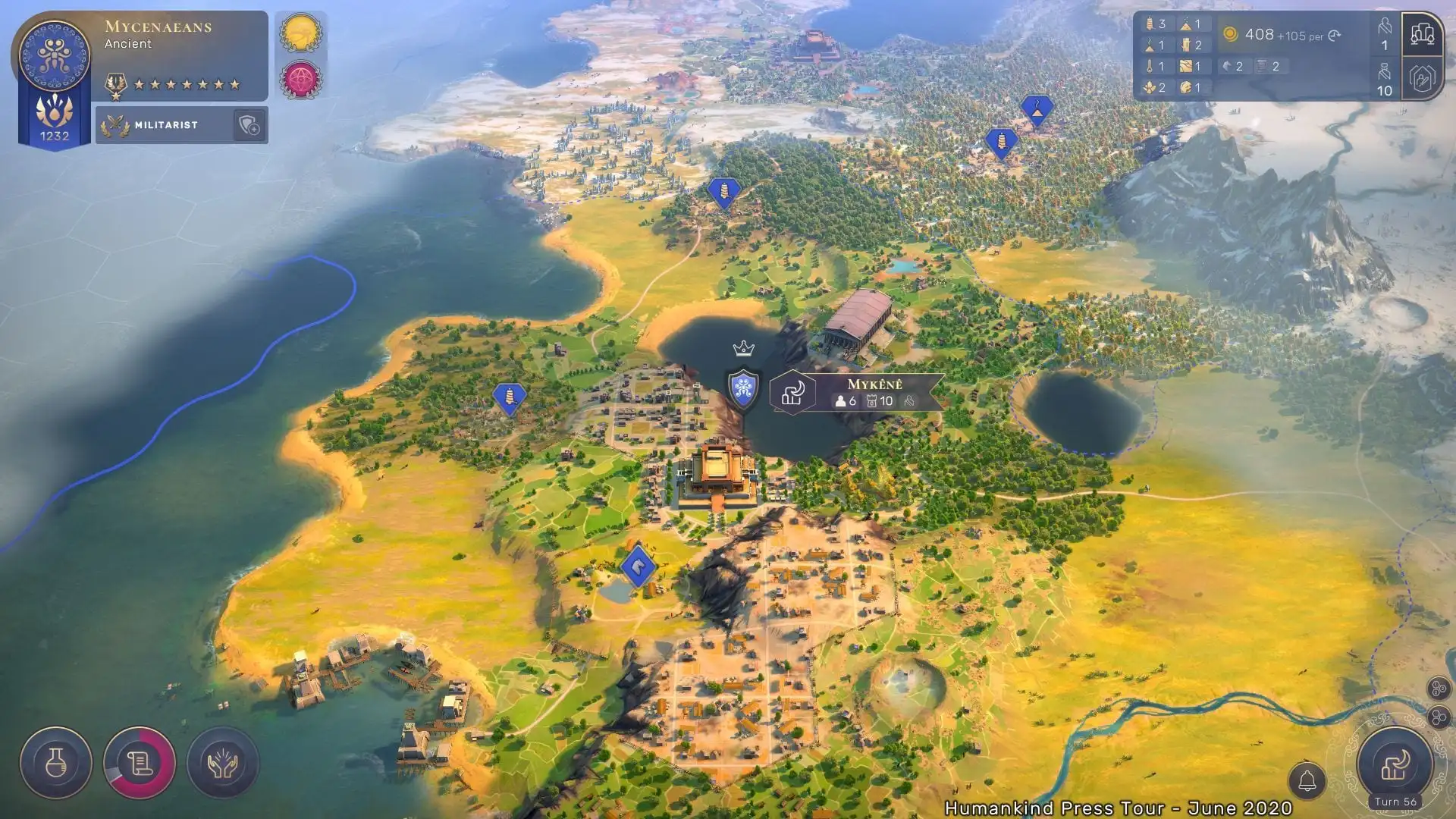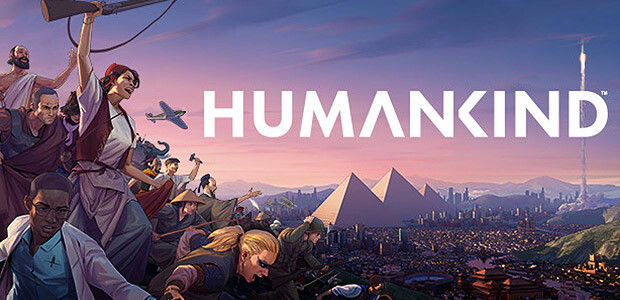
The game’s billed as a grand strategy affair, although I found it easier to compare Humankind to 4X board games than grand strategy titles like Europa Universalis or Stellaris. Expanding in the opening era is very straightforward: you take a unit, find the hex where you want to establish a city, and off you go. As cultures apply important bonuses that last for the entirety of the game, it offers an interesting strategical choice that could mix up the mid and late-game phases nicely. While players can select from one of ten cultures from each era, whoever advances first gets the first pick, removing that culture from play for everyone else.

You don’t have to accumulate all of them before advancing, but there are good reasons for rushing through. Importantly, era stars are what lets you advance to the next era. Different cultures will advance faster depending on their natural strengths, but it means you can still pick up victory points (or “Fame”) in other areas, too. These are achievements all players can reach over the course of an era, like accumulating a certain amount of gold, scientific advancements, winning a certain amount of battles, building a certain amount of units, and so on. If you’re the first to build a wonder, or a holy site, or to discover Mount Everest, you get a specific amount of points for the discovery.Įach era also has a certain amount of “era stars”. And the first way to do that is through deeds, which are era-specific objectives that players can complete.Įveryone has a list of deeds, and they can only be completed once. The idea, as Amplitude explained to press and content creators beforehand, is that the winner is the person who builds the most famous culture by the end of the game. It’s not a space race, or a race to expand your culture or religion. This is the sole determinant for picking the winner at the end of the game. As you complete certain feats, you’ll get extra victory points. Like a board game - Tapestry in particular comes to mind - your culture gains a certain amount of victory points over the course of every era. So, you might ask: where does Humankind actually differ from Civilization? Civ is already a great game - why play something new that emulates the raw gameplay so closely?įirstly, the main difference is in how you win. Horseback Riding is Domestication City Defense takes the place of Masonry.

Your city produces a certain number of these every turn, as well as money for the overall kitty.Īfter founding your first city, you’ll start advancing down the tech tree. Bit like Australia in Civ 6.Įvery tile around you has benefits and attributes, and it’s all familiar to Civ fans: some have better food, some tiles are better for production, some have scientific benefits, some have special resources. Good early-game stuff for juicing your population, basically. I ended up rolling with the Harappans, a culture that got two extra food and production from river tiles, as well as an extension to canal networks that added one extra farmer slot and extra food. Traditionally you’ll get ten cultures to pick from, but for the demo I was limited to four. Each culture has its own Legacy Trait, which carries on across eras, temporary bonuses for that era, and a culture-specific unit and improvement, much like Civ. In Humankind, you pick a culture with the transition of each era.

Normally, the process of picking your faction would be done before the game begins. It’s here that Humankind starts to diverge from the traditional Civ, 4X formula.


 0 kommentar(er)
0 kommentar(er)
